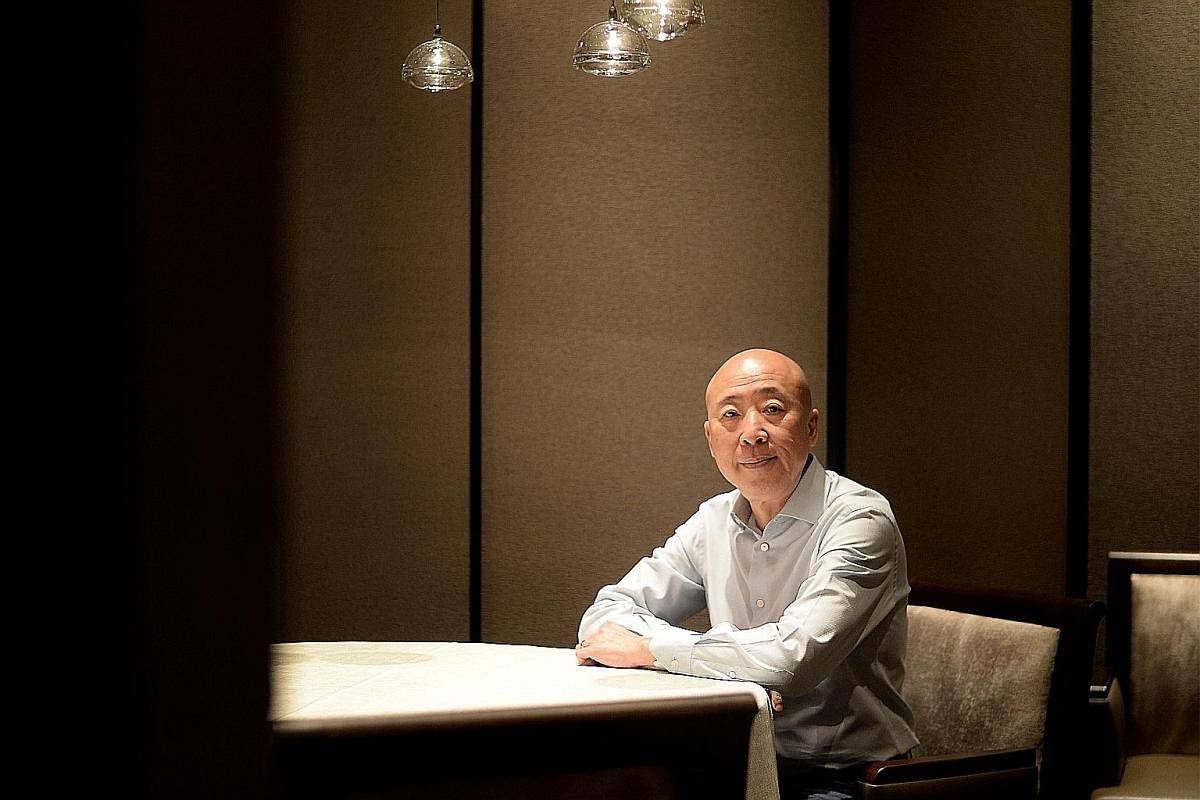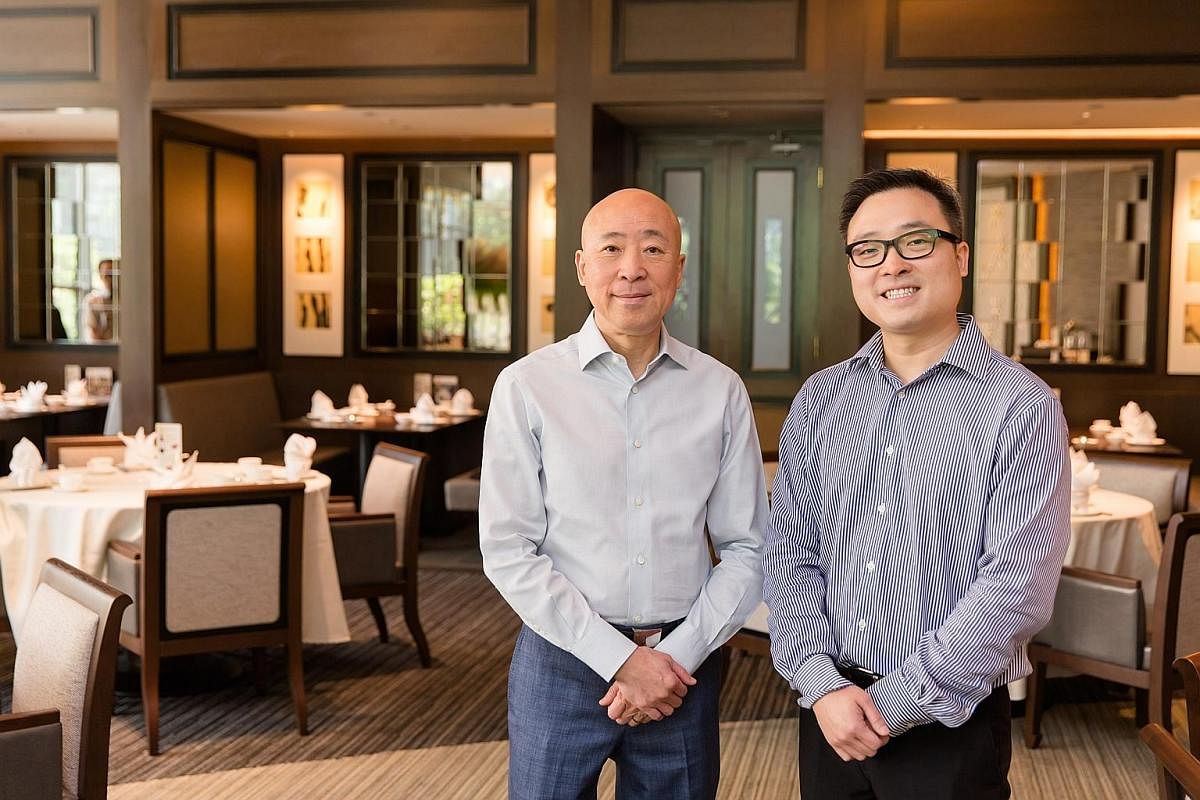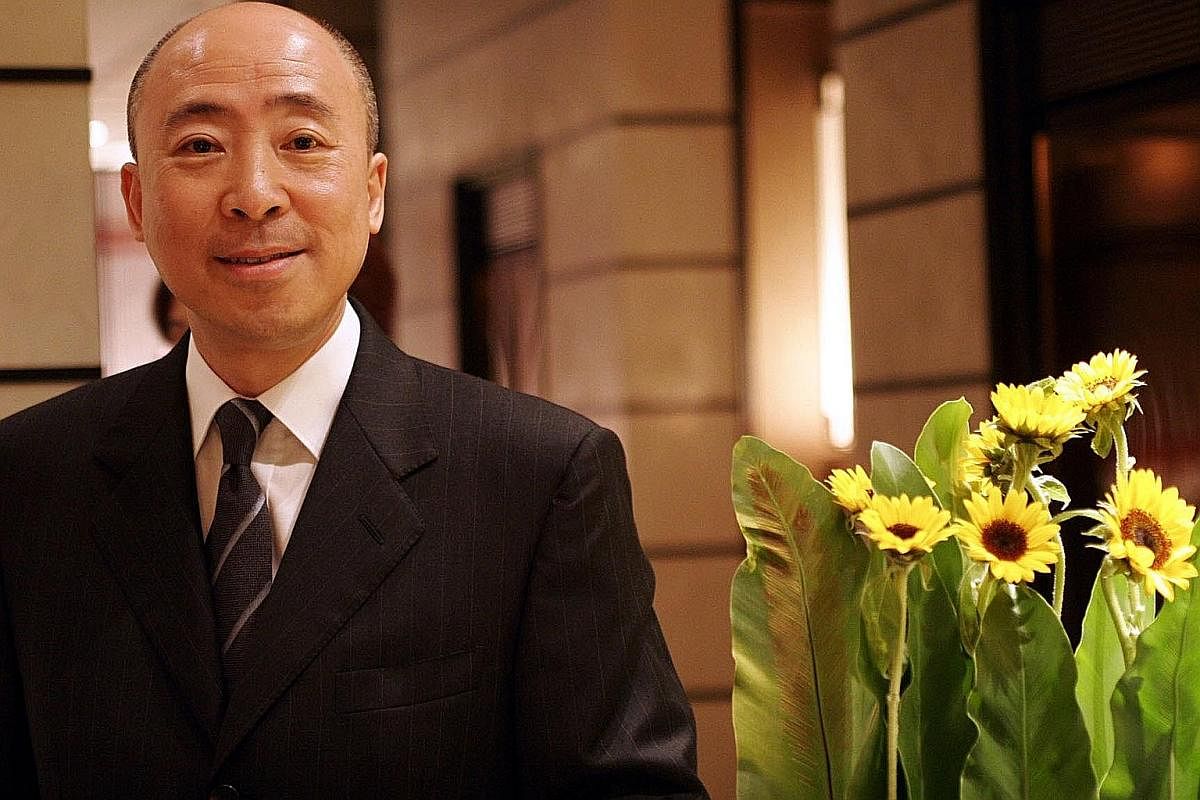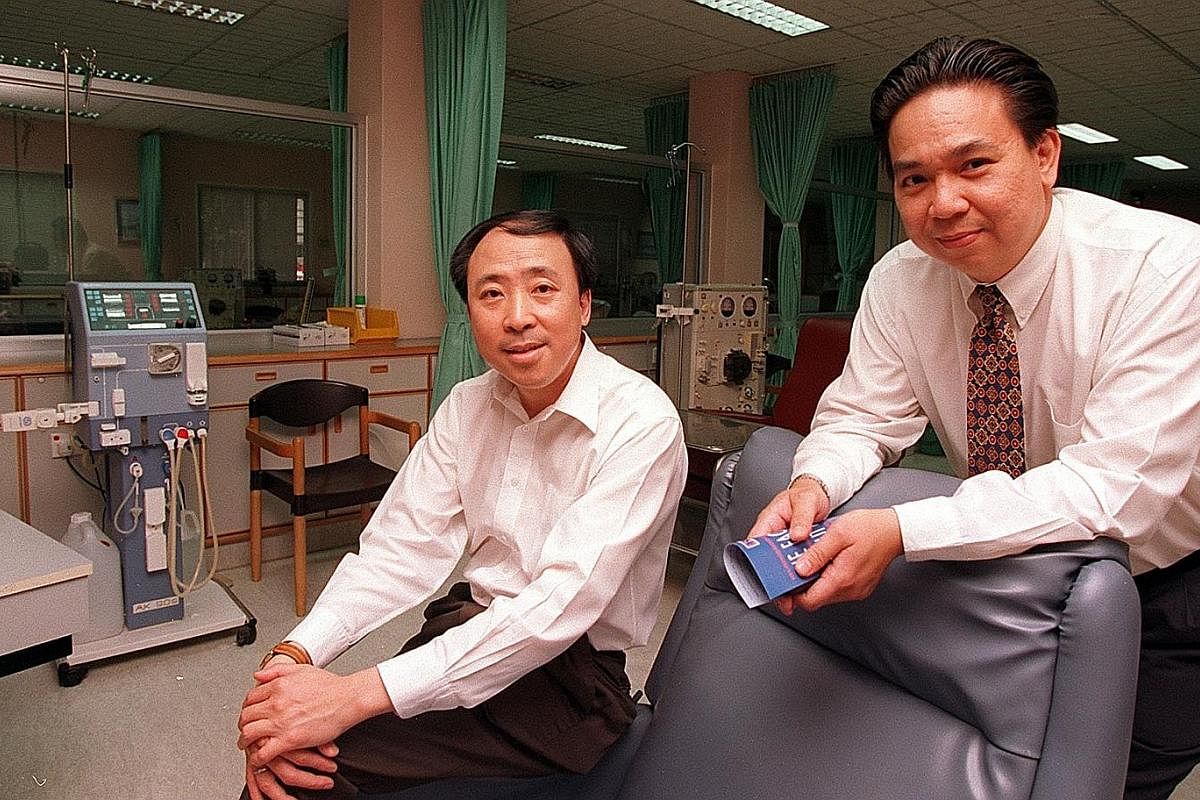The Life Interview With Alfred Leung
Building the Imperial Treasure trove
Imperial Treasure founder Alfred Leung plans to open restaurants in the food capitals of the world, including Paris, Tokyo and Seoul




To say that Mr Alfred Leung, founder of the Imperial Treasure Restaurant Group is low-key, is an understatement.
For many years, requests for interviews with the veteran player of Singapore's Chinese restaurant scene have gone unanswered or been declined.
When I finally snag face time with the 63-year-old last month and tell him that he has been elusive, he chuckles politely and nods in agreement.
The reason he is breaking his silence: The restaurant group has ambitious growth plans which he wants to share.
Speaking in a mix of Mandarin and English, the Hong Kong-born restaurateur says: "We are expanding faster than last time. The brand has matured and now is a good time for us. We don't normally like to do this kind of publicity, it's not our style, but I feel it is necessary for customers to know what we are doing."
Soft-spoken and looking a decade younger than his age, he is nonetheless taciturn, preferring to have the spotlight on his business rather than himself.
At a media lunch to introduce the group's new Fine Teochew Cuisine restaurant in Ion Orchard, he is friendly with the press and enthusiastically explains each dish when it arrives.
But in the 30-minute one-to-one chat with him after the meal, he is reserved and speaks in carefully measured tones.
At one point, he even refuses to be photographed for this interview and it is only after much persuasion that he obliges, albeit insisting that the pictures be taken in the private dining room of the restaurant where the interview is conducted, away from the public eye.
The restaurant empire he founded in Singapore in 2004, however, has frequently been in the limelight for upping the competition in the dining scene with its use of quality ingredients and consistent food and service.
Its 24 outlets here range from premium dining concepts such as Super Peking Duck at Paragon (ranked No. 47 on Asia's 50 Best Restaurants 2016 list) and Fine Chinese Cuisine at Marina Bay Sands to more casual brands such as three Noodle & Congee House outlets and four Bakery shops.
There are also five Imperial Treasure outlets in Shanghai, including its Fine Chinese Cuisine and Super Peking Duck brands.
More are in the pipeline following the investment boost it received in June 2015 when Mr Leung sold a majority stake in the business to Malaysia-based private equity group Navis Capital Partners for a sum, reported by Bloomberg, of between $60 million and $80 million.
Mr Leung says he was introduced to the investors through a mutual contact and that he remains a "significant shareholder", although he declines to confirm the reported amount of the sale.
He says: "We are all working closely together to expand the business and Navis Capital is helping us to strengthen parts of the business to equip the group to grow in major global cities. The additional investment helps to accelerate our international expansion plans."
Just last month, it opened Fine Teochew Cuisine in Ion Orchard and a steamboat outlet in Great World City. This month, two of its Fine Chinese Cuisine restaurants will open in Guangzhou and Hong Kong.
In the next two to five years, it plans to launch more outlets in Singapore as well as in the food capitals of the world, including Paris, London, Tokyo and Seoul.
On making China the first stop of its international expansion, he says: "The China market has been growing exponentially and there is increasing demand for quality, authentic Chinese cuisine. Our restaurants are ideal for businessmen as well as families in China."
His confidence in the China market is further cemented by the two Michelin stars it received this year for its Fine Chinese Cuisine restaurant near the Bund in Shanghai.
It is the first time a restaurant in the group has earned the coveted stars. His restaurants in Singapore have not received any Michelin stars, which he says is "disappointing".
Besides growing in numbers, the group is also placing emphasis on its fine-dining segment.
For example, the Fine Teochew Cuisine restaurant in Ion Orchard is a new, upmarket version of the former Teochew Cuisine outlet in Ngee Ann City. The Ngee Ann City outlet, which has since closed, was the group's first restaurant.
The menu of the new Teochew restaurant still features signature dishes such as Teochew-style chilled flower crab, pork intestines stuffed with glutinous rice, and wok-fried hor fun with diced kailan and preserved radish, but the restaurant setting has been updated with a stylish, contemporary look.
On targeting the fine-dining sector, he says: "As I travel the world, I see a gap in the market for fine Chinese cuisine, which is why we are moving towards it. I believe good quality Chinese cuisine will always be a staple."
Focusing on fine dining
He adds that diners here, who are well-travelled and exposed to the international dining scene, have become more sophisticated in their tastes and are ready for more polished restaurants.
"Today, just having good food is not enough. Service, ambience and beautiful plating are key to a holistic dining experience," he says.
It is such foresight and his ability to translate vision into action that has made him a key figure in Singapore's restaurant industry.
Mr Ignatius Chan, 53, founder of fine-dining restaurant Iggy's at Hilton Singapore who has been friends with him for 20 years, calls him a "big brother".
He is an example, Mr Chan says, of someone who is able to "always take feedback as constructive and make changes based upon it, while also maintaining consistency".
Mr Chan adds that he is "easy-going, full of humility and an optimist", and also "extremely generous", willing to share his suppliers and wine producers.
Mr Leung is also savvy about winning the loyalty of diners.
To grow the group's customer base in tandem with its increasing number of outlets, he rolled out a membership rewards scheme last October, and it has since drawn a few thousand sign-ups.
For some observers of the restaurant industry, the group's development may appear similar to another home-grown Chinese restaurant chain, Crystal Jade, which has expanded rapidly in recent years following private equity investment.
In fact, Mr Leung founded Crystal Jade in 1991 with his brother-in-law Ip Yiu Tung before leaving to start Imperial Treasure.
Crystal Jade was acquired in May 2014 by L Capital Asia, the private equity arm of French luxury goods conglomerate LVMH Moet Hennessy Louis Vuitton, for an estimated US$100 million (S$145 million), or more than 90 per cent of the restaurant group.
The following year, Standard Chartered Private Equity injected US$52 million into the restaurant business, which now has close to 30 outlets in Singapore, as well as branches overseas in cities such as Seoul, Hong Kong and San Francisco.
Mr Leung, however, is not keen to talk about the widely perceived similarities between the two restaurant groups as it will mean publicity for his competitor, he says wryly.
When he parted ways with Crystal Jade to start Imperial Treasure in 2004, the news surprised the restaurant industry.
The seeming rivalry between the two groups - with both sharing similar restaurant concepts, price points and interior design in the early days - also made headlines.
On striking out on his own, he says: "I wouldn't say that I faced struggles at Crystal Jade. But, as it grew bigger, the direction of the company started to change.
"At that point, I felt it was the right time to start a new venture on my own and to follow my dream of creating a restaurant with a greater focus on fine dining."
The enterprising businessman has certainly come a long way in his career in the food and beverage industry.
He started out as a bartender at the age of 16 at now-defunct Swiss restaurant Islander in Hong Kong's Wanchai district before working as a waiter in Chinese restaurants in the city.
He says: "At that time, what motivated me to work in the food and beverage industry was the starting salary, which was one of the higher ones. People also viewed it as a res- pectable career choice."
He declines to speak about his family background.
The high-school graduate moved to Singapore in 1981 in search of better job prospects and was the manager of the now-defunct Happy Valley restaurant in Singapore Shopping Centre for three years before he was offered shares in the restaurant.
For him, the offer meant "having an invested interest in the future of the business" and it was what inspired him to become a restaurateur, he says.
He also honed his restaurant management skills as the operations manager of Cantonese restaurant Wah Lok in Carlton Hotel prior to opening Crystal Jade.
His passion for the business has since gone beyond dollars and cents to a love for food and wine.
Mr Chan of Iggy's says: "When we have meals together, he is always able to pinpoint how the addition of certain ingredients or garnish can enhance a dish."
Mr Leung's taste veers towards the simple but refined. He enjoys having porridge for breakfast, and for dinner, pigeon with a glass of fine red wine.
When pressed for restaurants that he enjoys dining at besides his own, he names Founder Bak Kut Teh in Balestier Road.
As a hands-on chief executive, he is often busy at his restaurants, but he makes time to swim daily, even when he travels for work
He and his wife Hera, 59, have a daughter, Jennifer, 34, and son Kenny, 37.
Kenny, who is a trained architect, is being groomed to take over the reins of the business and he now oversees the group's operations and projects.
Mr Leung's older brother Jimmy and younger brother Vincent are also involved in the business and they manage the operation of the restaurants in Singapore.
While not one to rest on his laurels, Mr Leung admits that opening new restaurants has become much easier with age and experience.
He says: "Whether it is getting manpower or coming up with the decor of the restaurants, we have a formula when it comes to new openings by now."
•Follow Eunice Quek on Twitter @STEuniceQ
•For more food stories, go to straitstimesfood.com
Join ST's Telegram channel and get the latest breaking news delivered to you.
A version of this article appeared in the print edition of The Straits Times on January 02, 2017, with the headline Building the Imperial Treasure trove. Subscribe

